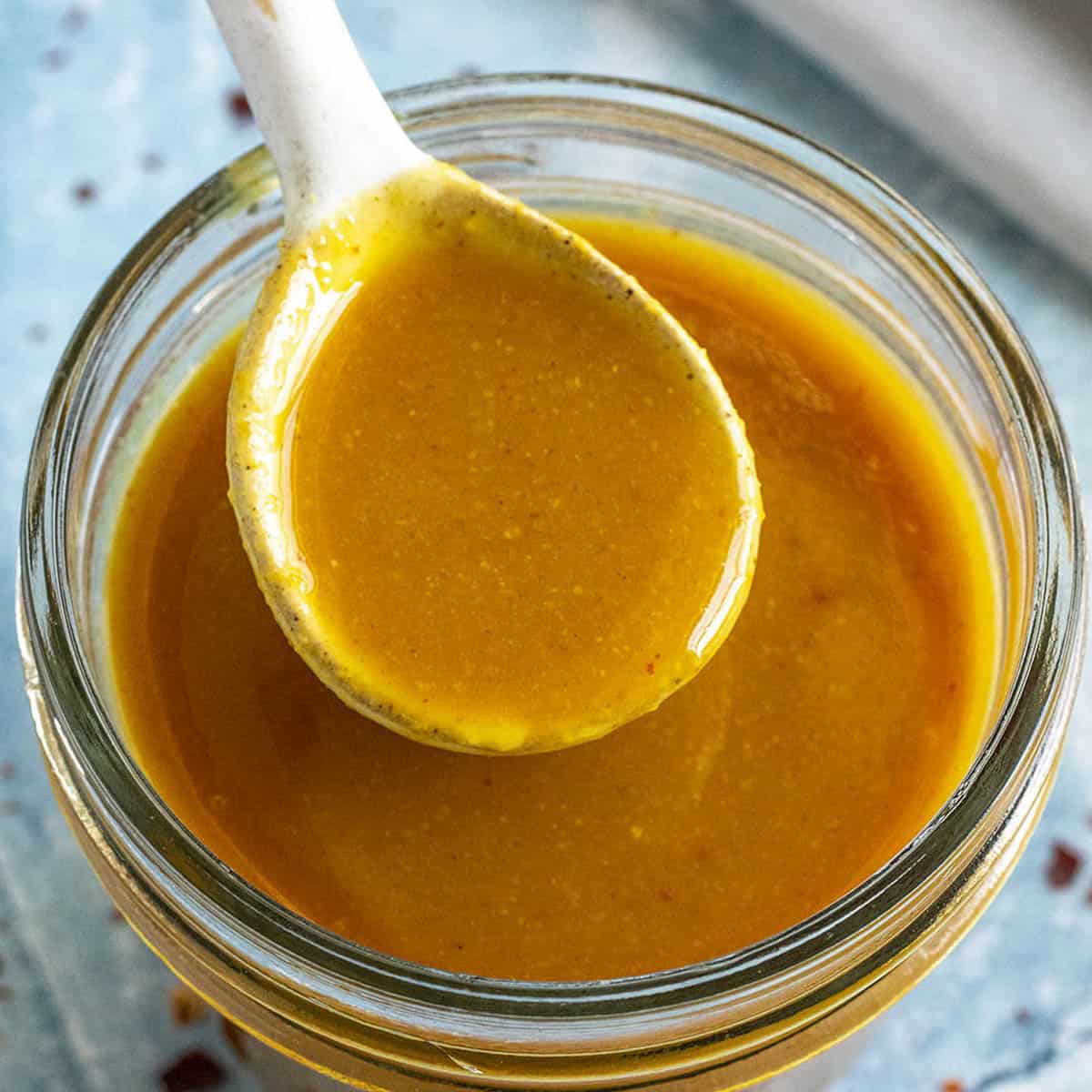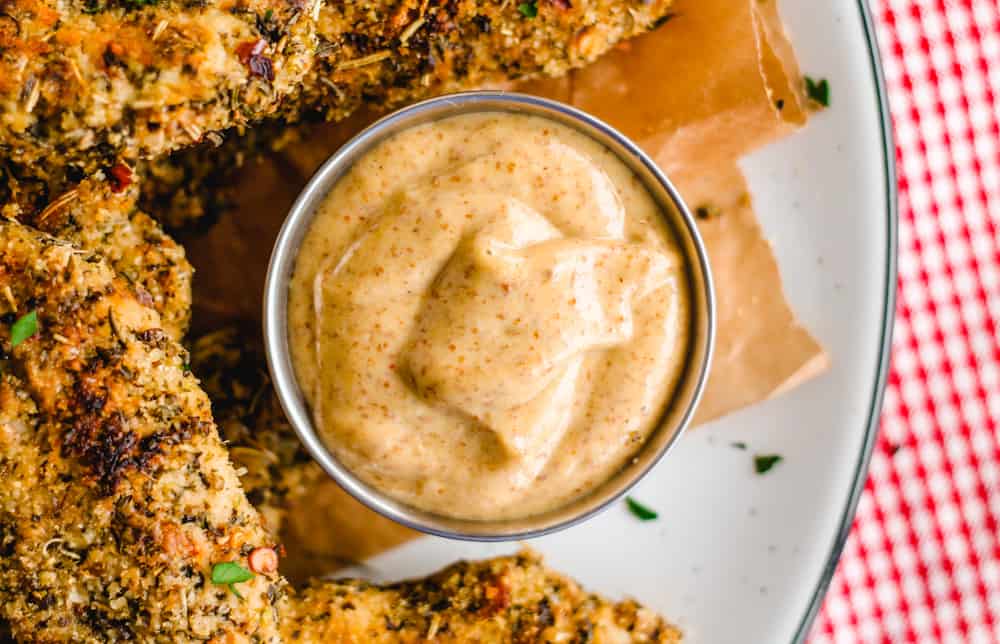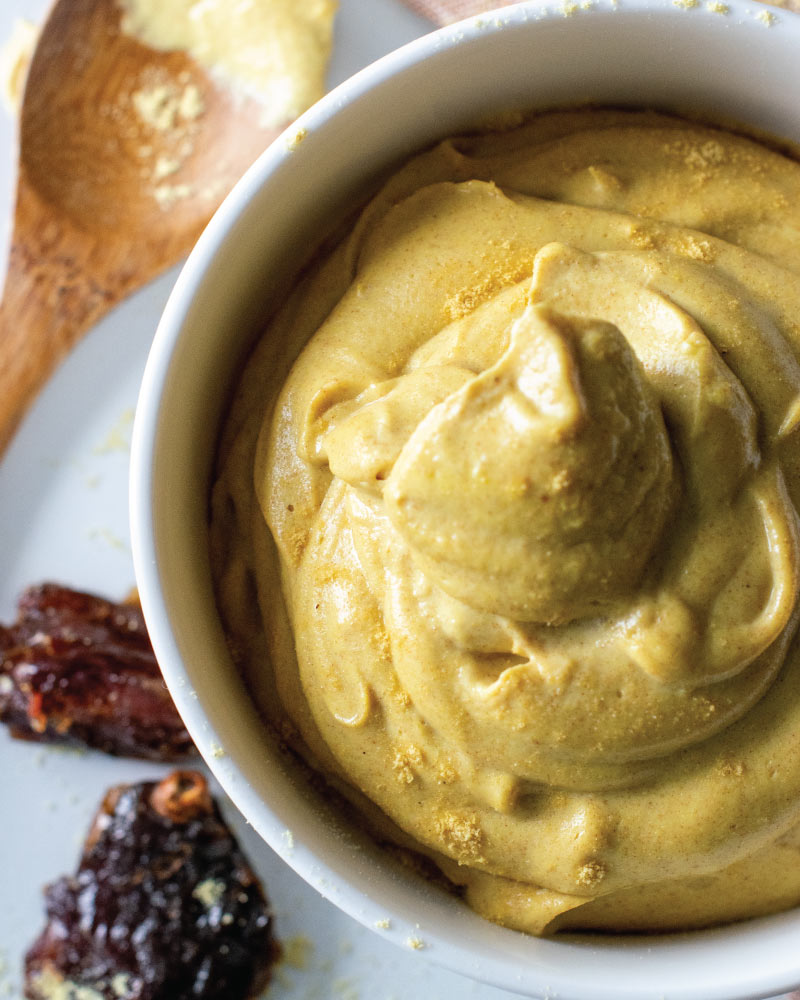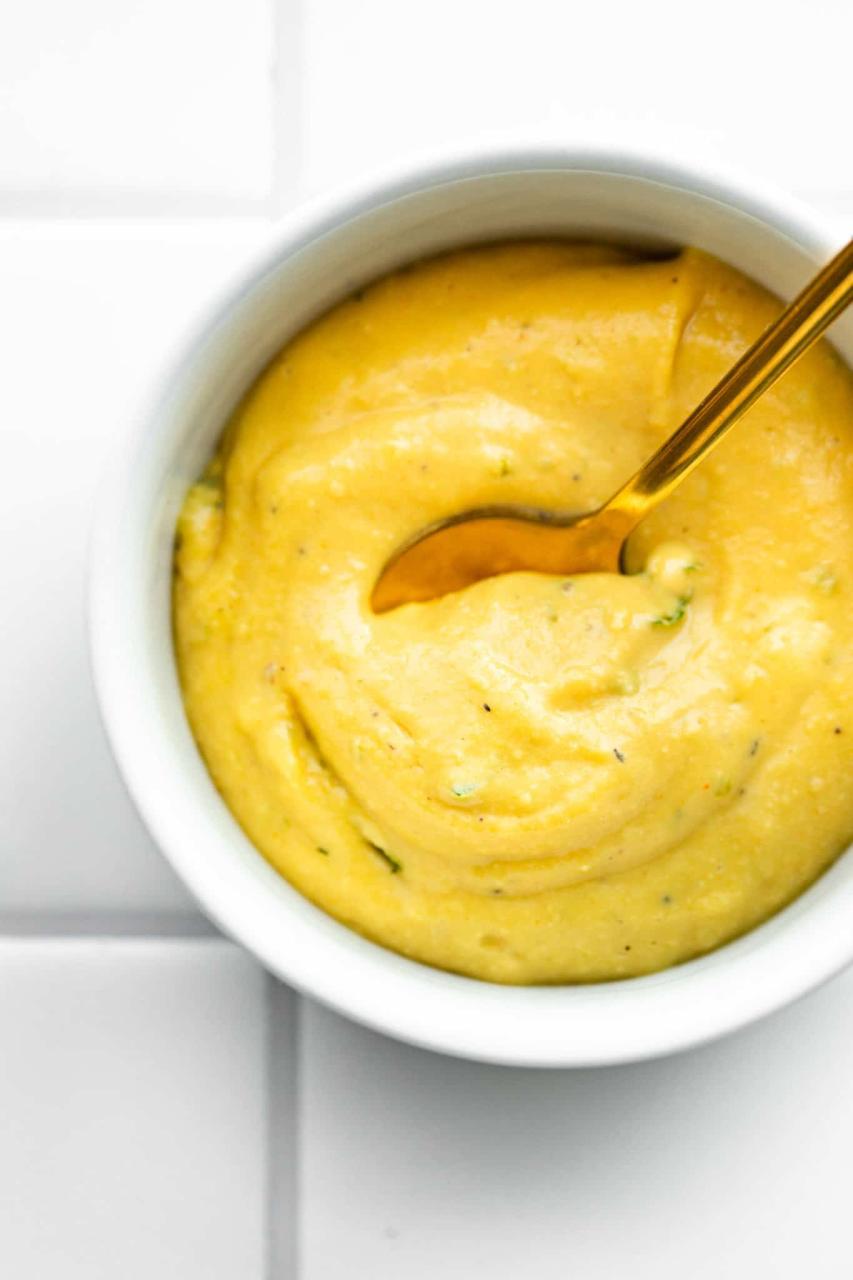Orange mustard sauce is a culinary condiment that combines the zesty and tangy flavor profile of oranges with the sharp, piquant taste of mustard. This sauce is versatile and can add a unique flavor dimension to various dishes. The base of the sauce typically includes orange juice or zest for a citrus note and mustard for a robust depth. The type of mustard used, such as Dijon, whole grain, or yellow mustard, will influence the sauce’s overall flavor and texture.
Creating an orange mustard sauce involves balancing the sweetness and acidity of the oranges with the spiciness of the mustard. Sweet components may include honey or sugar, while acidity might be adjusted with the addition of a vinegar, like apple cider or white wine vinegar. Additional seasonings like salt, pepper, and herbs such as thyme or rosemary can be used to tailor the sauce to the desired palate. The consistency of the sauce can range from thick and creamy to thin and pourable, depending on its intended use.
In cooking, orange mustard sauce pairs well with a variety of proteins, including chicken, pork, and seafood. It acts as a lovely glaze for baked or grilled meats, and can also elevate the taste of vegetarian dishes and salads. The citrus element in the sauce brings a freshness that cuts through the richness of heavier dishes, while its mustard component adds a complementary sharpness.
The origin of such sauces often has roots in both European and American cuisines, where fruit and mustard have been combined for centuries to enhance flavors in cooking. Contemporary variations of the orange mustard sauce may incorporate global ingredients such as soy sauce or chili for an Asian twist or employ different citrus fruits like lemon or lime for a range of flavor alternatives.
Orange Mustard Sauce Recipe


Orange Mustard Sauce
Equipment
- 1 medium mixing bowl
- 1 air tight container
Ingredients
- 1 tbsp mustard
- 2 tbsp fresh chives chopped
- 1 tsp orange zest
- 2 tbsp soy yogurt unsweetened
- 2 tbsp orange juice
- Kosher salt to taste
- Freshly ground black pepper to taste
Instructions
- Combine the mustard, fresh chives, orange zest, soy yogurt, orange juice in a medium mixing bowl and whisk until well mixed. Season dressing with a pinch of salt and pepper and stir well.
- Taste and make the necessary adjustment, add more orange juice for a sweeter sauce or more mustard for spicier sauce. Serve and enjoy
- Store any leftover in an air tight container and keep in the fridge, use within a week
Cooking Tips about Orange Mustard Sauce

- Ingredients Proportions: To achieve a balanced flavor, it’s important to carefully measure your ingredients. Typically, the sauce would include a combination of orange juice for sweetness and acidity, mustard for spice and tang, and other ingredients like honey or sugar for added sweetness, vinegar for extra acidity, and perhaps garlic or shallots for depth. Adjusting the ratio of these elements can change the sauce from sweet to savory to tangy, catering to the dish it will accompany.
- Orange selection: For the orange component, using freshly squeezed orange juice is preferable for a brighter, more authentic flavor. You can zest the orange before squeezing to include some zest in the sauce, which will add a more intense orange essence.
- Mustard selection: The type of mustard used can greatly affect the sauce. Dijon mustard is a common choice due to its smooth texture and complex flavor, but whole grain mustard can add a delightful texture, and yellow mustard could be used for a milder sauce.
- Seasoning and Taste Adjustment: Besides the main components, seasoning the sauce with salt and pepper is crucial, and taste-testing is key. Depending on the desired outcome, you may also incorporate herbs like dill or tarragon.
- Consistency: The desired thickness of the sauce will dictate the cooking time and whether you use a thickening agent like cornstarch or reduce the sauce over heat. For a dressing, a thinner consistency is ideal, whereas a thicker sauce might be preferred for glazing.
- Acid Balance: The addition of a little vinegar or lemon juice can help to balance the sweetness of the orange and the heat of the mustard, especially if the sauce is leaning too heavily towards the sweet side.
- Heat Application: If you’re incorporating ingredients like shallots or garlic, a gentle sauté in a bit of oil before adding the liquid ingredients can mellow their flavor. Bringing the sauce to a brief simmer allows the flavors to meld.
- Resting Time: Allowing the sauce to sit for a short period after cooking can improve its flavor, as it gives time for the ingredients to marry.
Serving suggestions about Orange Mustard Sauce

- Glazing for Meat – The sauce can be brushed over roasted or grilled meats such as chicken, pork loin, or duck during the last few minutes of cooking. The sugar in the sauce will caramelize slightly, creating a delightful glaze.
- Salad Dressing – When thinned out with a bit of olive oil and vinegar, orange mustard sauce can make a zesty dressing for hearty greens like kale or arugula.
- Sandwich Spread – A thick version of the sauce can be spread on sandwiches, especially those with ham or turkey, to add a layer of complexity to simple lunch meats.
- Seafood Enhancer – Drizzled over salmon or used as a dipping sauce for shrimp, the sauce can accentuate the natural flavors of seafood without overpowering it.
- Charcuterie Boards – The sauce can be a bright condiment on a charcuterie board, pairing well with strong cheeses and salty cured meats.
- Appetizer Dip – Combined with mayonnaise or sour cream, the orange mustard sauce can serve as a dipping sauce for vegetables, chips, or pretzels at gatherings.
- Roasted Vegetables – Tossing vegetables like brussels sprouts, carrots, or sweet potatoes in the sauce before roasting can add a delectable zing.
- Barbecue Twist – The sauce can be integrated into barbecue sauce recipes to introduce a new flavor profile to traditional barbecue dishes.
Top 5 FAQs about Orange Mustard Sauce

- What is the basic recipe for orange mustard sauce? To create an orange mustard sauce, one would typically combine mustard (often Dijon or whole-grain) with orange juice, and possibly other ingredients such as orange zest, honey or sugar, vinegar, and spices. The proportions can vary depending on whether a sweeter or more piquant flavor is desired.
- What dishes pair well with orange mustard sauce? This sauce pairs well with a variety of meats, particularly poultry and pork. It can also be used as a glaze for baked ham, in salad dressings, or as a dipping sauce for finger foods and appetizers. Its vibrant flavor complements the savory notes of these dishes.
- Can orange mustard sauce be made ahead of time? Yes, it can be prepared in advance and stored in a sealed container in the refrigerator. Doing so can allow the flavors to meld and intensify. It is advisable to let it reach room temperature before serving to enhance its taste and consistency.
- What are some variations of orange mustard sauce? Variations can include adding ingredients like ginger for a spicy kick, garlic for depth, or herbs such as thyme or rosemary for aromatic complexity. Other citrus fruits like lemon or lime can also be incorporated for a different citrus note.
- Is orange mustard sauce suitable for individuals with dietary restrictions? Orange mustard sauce can potentially be adjusted for various dietary requirements. For gluten-free needs, ensure that the mustard used does not contain any gluten. For vegan diets, honey can be substituted with maple syrup or agave. Always check labels for potential allergens.
Orange mustard sauce is a condiment that combines the tangy, citrus flavor of orange with the spicy, pungent taste of mustard. The background of this sauce likely involves culinary traditions where fruit and mustard have been used together to add complexity and flavor to dishes, a practice seen in various global cuisines. The precise ingredients can vary, but typically this sauce might include orange juice or zest to provide the citrus element, and a variety of mustards, such as Dijon or whole-grain, for the mustard component. Additional ingredients can include sweeteners like honey or sugar, vinegar for added acidity, and perhaps spices and herbs for more layers of flavor.
In creating a nuanced description of the sauce, we could consider its culinary applications. The sauce has a balance of sweetness, acidity, and sharpness, making it versatile for use in dressings, marinades, glazes, or as a dipping sauce. Its bold flavor profile allows it to pair well with meats such as poultry, pork, and even seafood. The sweetness of the orange can offset the intensity of the mustard, creating a harmonious blend that enhances rather than overwhelms the taste of the main dish.
Given the richness of the sauce in both flavor and potential uses, a conclusion about orange mustard sauce could state that it is a multifaceted condiment that can accentuate a wide array of dishes by providing a unique blend of sweet, tart, and spicy flavors. Its versatility in the culinary world is a testament to its appeal, and it can be tailored to personal tastes with adjustments to the sweetness or the heat levels. This makes orange mustard sauce a valuable addition to any cook’s repertoire, capable of accentuating the natural flavors of food while also introducing a note of creative complexity.
Leave a Reply